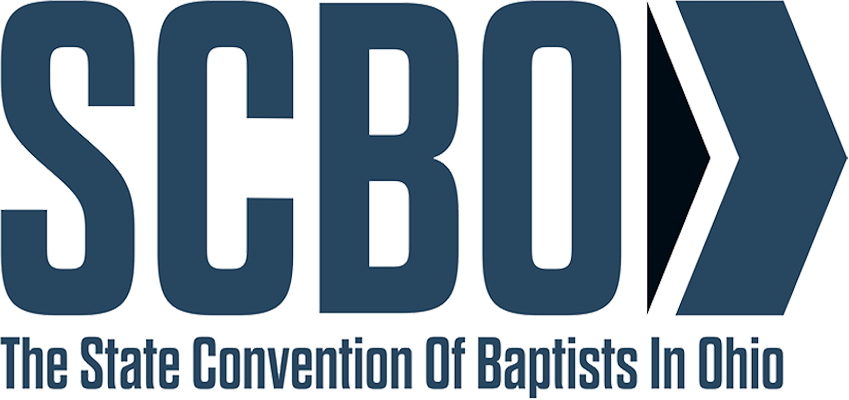Disaster Relief Partners with Local Church to Aid Storm Victims
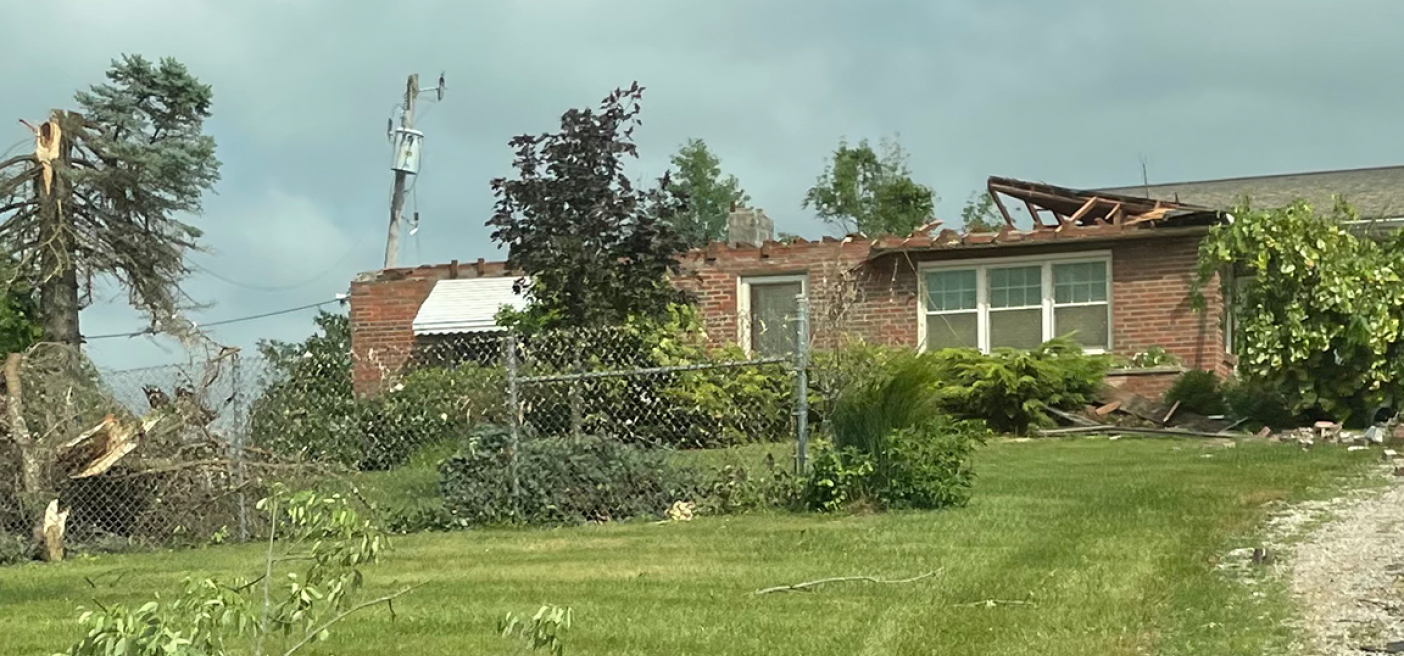
By Stephanie Heading
One little-known, but important aspect of Disaster Relief is its partnership with local churches during disasters. DR teams regularly seek housing in Southern Baptist churches in or near disaster sites. These churches open their doors, providing DR teams a place to sleep, eat, and shower.
“In a disaster zone, if there are hotels, storm victims take shelter in them,” said Dr. John Heading, Ohio DR Director. “The local churches who open their doors to house teams are essential to the success of our ministry.” In early July when three tornadoes touched down in the southwestern Ohio town of Goshen, another Disaster Relief-church partnership quickly formed. “Hill Station Baptist Church was the hosting site for the DR efforts in Goshen, Wayne Township, and Brown County,” said Phil Hopper, pastor of Hill Station. “Our church was the headquarters and bunkhouse.” Hill Station received funds from The Ray Roberts Offering to assist with tornado relief in Goshen.
The local churches who open their doors to house teams are essential to the success of our ministry.
With only 258 volunteers in Ohio DR and multiple deployments throughout 2022, Heading was short of food service volunteers. Hill Station stepped up. “We had the privilege of preparing meals for the first week of deployment in Goshen,” said Hopper. “We also provided desserts the second week.”
The severity of the tornado impact in Goshen called for more personnel than Ohio had available so Heading reached out to other DR units for help. Tennessee, Illinois, and Kentucky Chainsaw Units and a Tennessee Incident Command Unit responded to the call and arrived in Goshen to help. In addition, a Food Service Unit from Michigan provided meals during week two of the deployment. In total, approximately one-hundred DR members from five states made Hill Station home for two weeks.
“The impact that DR had on our church was substantial because we had the opportunity to feed the teams and eat with them,” said Hopper. “It was during this time that our church members were able to form relationships with the DR members. The team had a real impact on my family as well. The team members loved on my family the whole time, and my kids hated to see the teams pull out.”
DR-local church partnerships are beneficial to both groups, according to Heading. “Our goal is to represent the local church in the communities in which we serve. As we help people, we refer them to the local churches which gives them an opportunity to minister to storm victims after we have moved on.”
Hopper could not agree more. “DR left my church encouraged, revived, and more focused on evangelism. I have heard stories of pastors and churches not wanting Disaster Relief to use their buildings as a base of operations. Those churches and pastors have missed tremendous blessings for their communities, churches, and themselves. If you have a disaster in your community and you can serve with DR, do not miss a special blessing.”
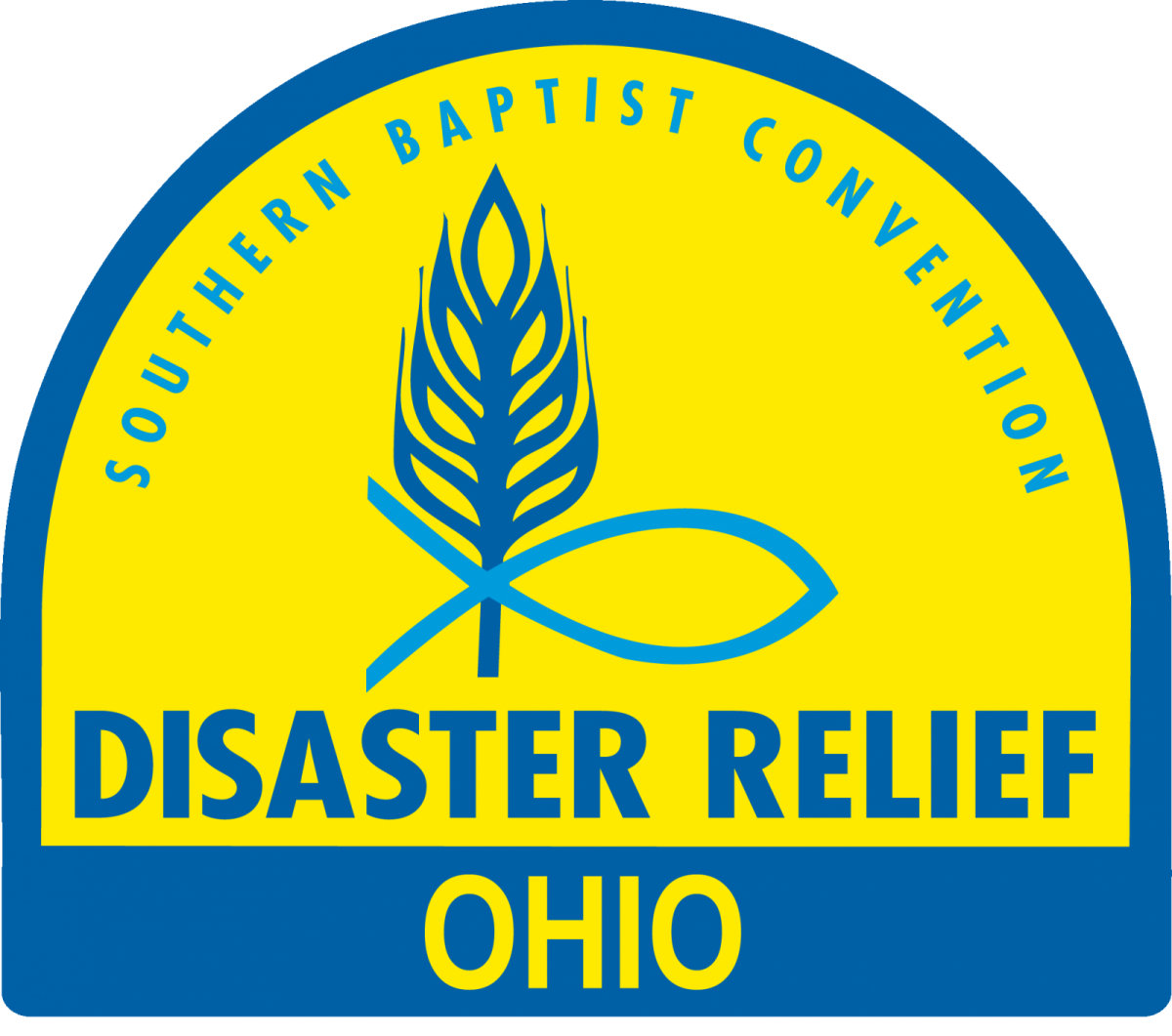
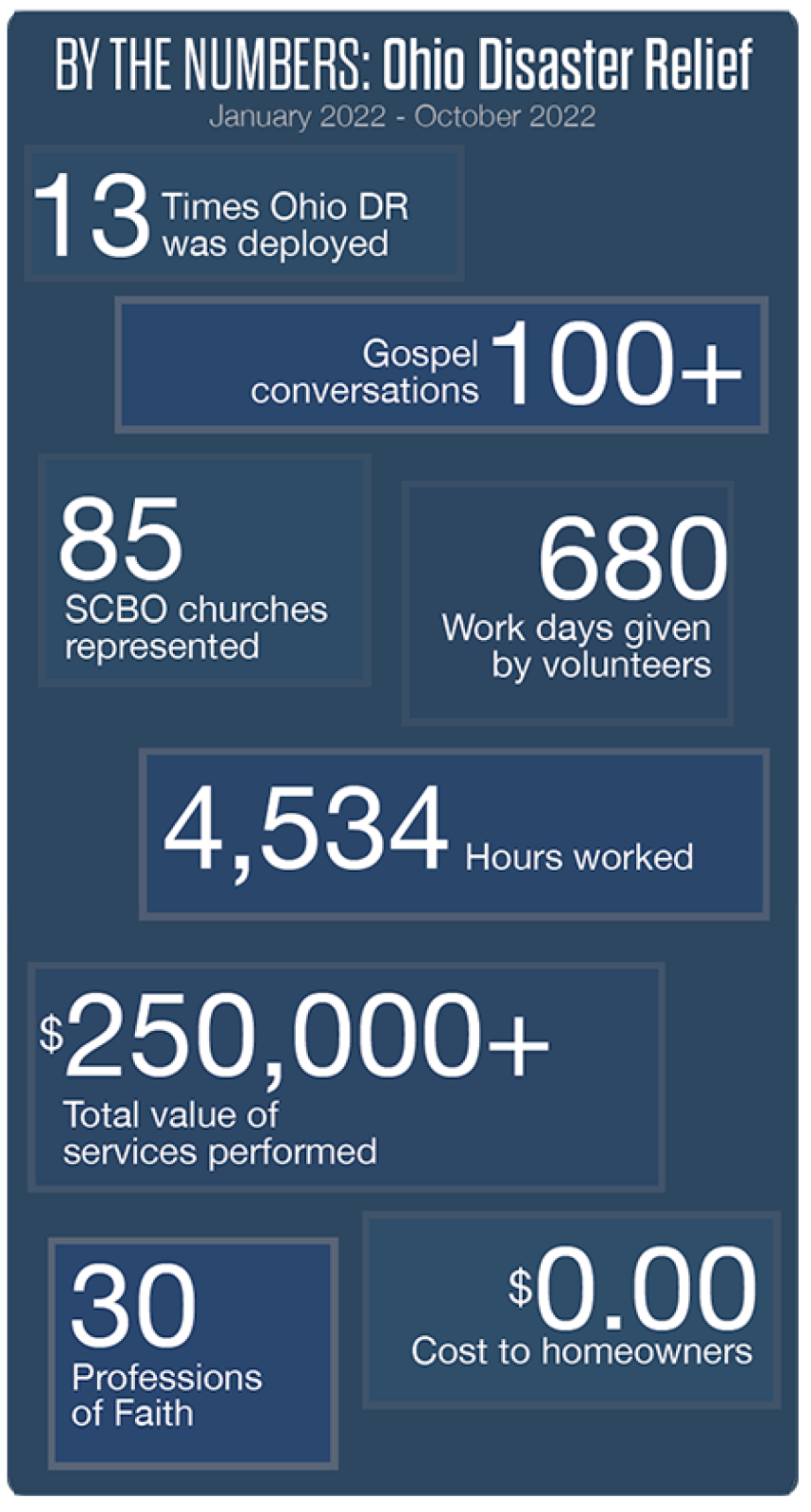
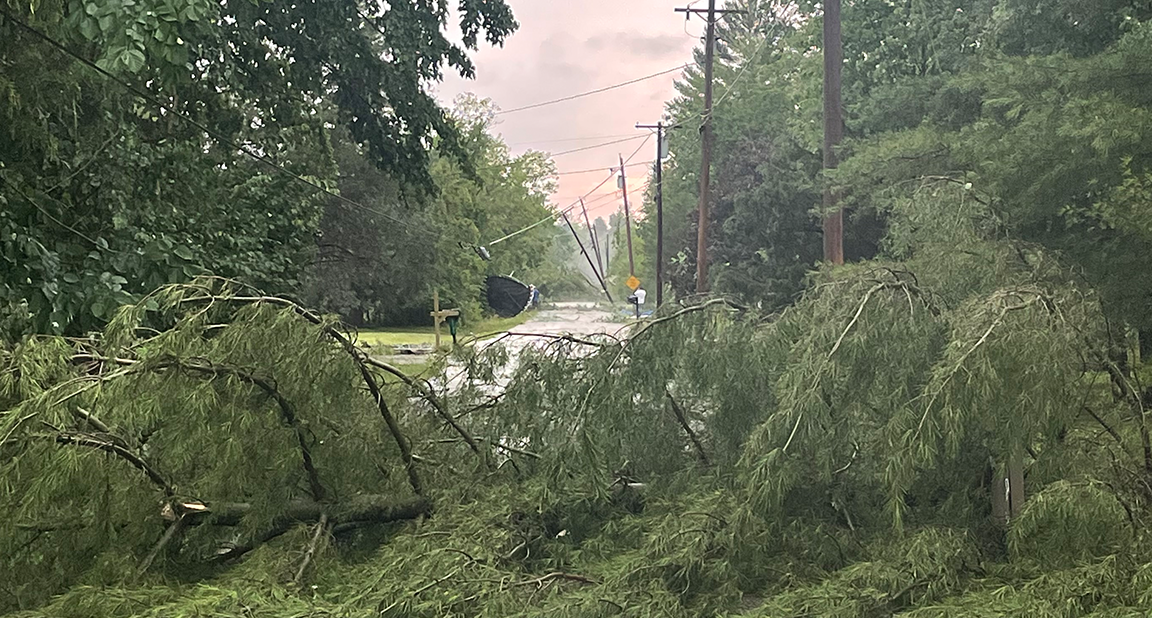
Three tornados left widespread destruction.
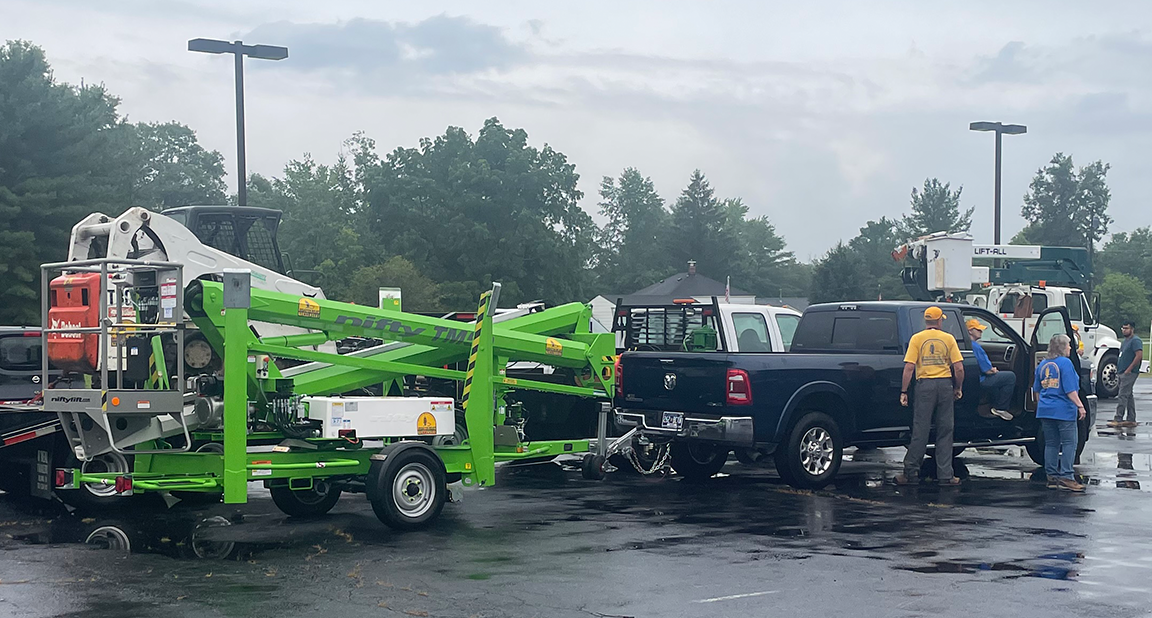
Volunteer teams bring equipment and supplies.
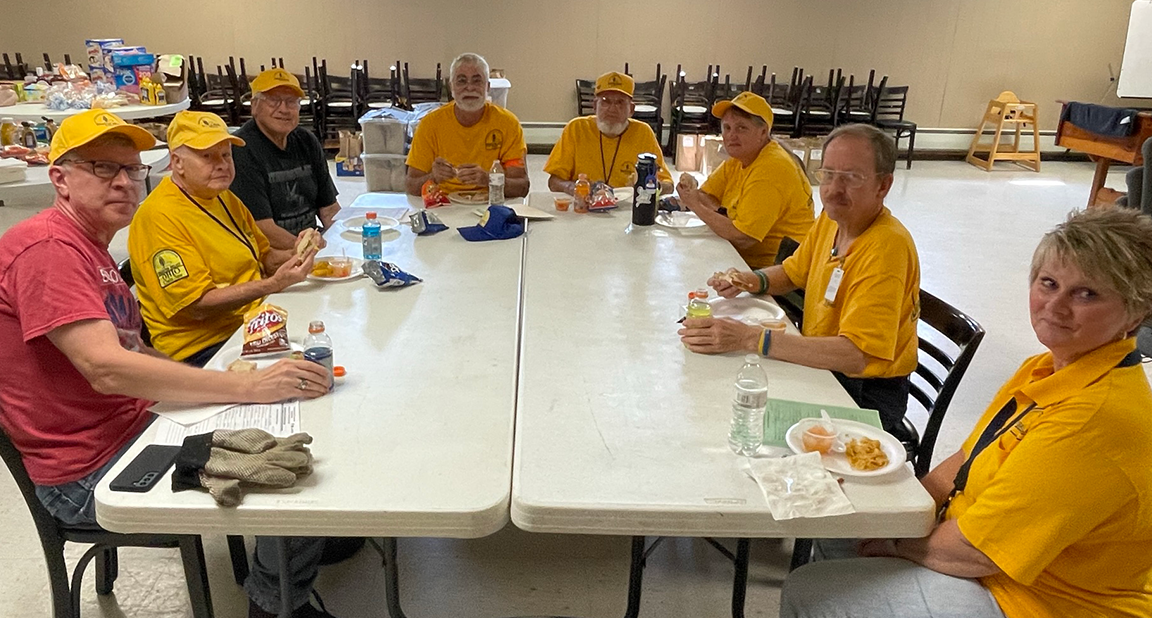
Hill Station hosted meals for volunteers.
